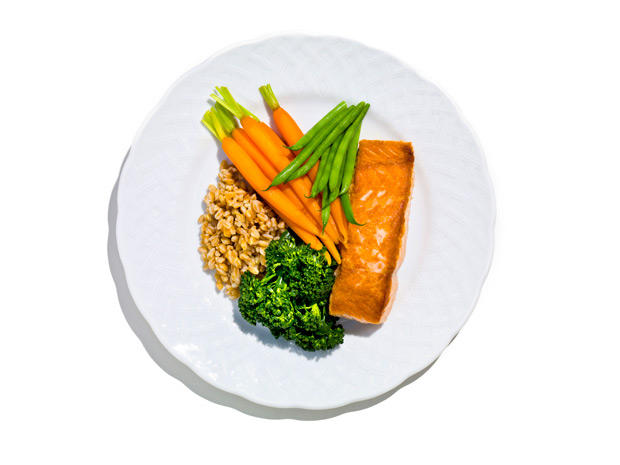What gives? We chatted with Pamela Peeke, MD, MPH, senior science advisor at Elements Behavioral Health and author of The Hunger Fix, about the top reasons some women are just always ravenous. Check them out—and see how to finally feel full.
1. You have a fast metabolism
Some women were born lucky (thanks, genetics). Others have worked hard, put on muscle, and revved their metabolism that way. And, of course, the faster your metabolism, the more fuel you need. According to research from the University of Vermont, about 32% of people have metabolisms that are more than 8% different (higher or lower) than the population average. So having a fast metabolism might amount to burning 100 to 400 extra calories a day, says Peeke. It’s not as much as you might hope, but it would explain that second serving of lasagna you just had to have.
2. You're eating refined foods
Processed foods—like white bread, cookies, even salad dressings—spike your blood sugar, let it crash, and then leave you feeling even hungrier than you were before you ate the stuff. Research published in the International Journal of Obesity shows that high-fat, high-sugar foods interfere with mood-regulating chemicals in the brain, leading to symptoms of depression and overeating. "Refined sugar, because it has such a powerful effect on the brain's reward center, is the most common reason people's appetites remain so high throughout the day," says Peeke. Limit the amount of packaged foods you're eating, and stick with whole-grain carbs whenever possible.
3. Your hormones are out of whack
PMS is one thing, but some hormonal conundrums can make you hungry all month long. Having hyperthyroidism, an overactive thyroid gland, is the most common hormonal cause of constant hunger, says Peeke. When thyroid hormones are too high, the body's vital functions speed up, and you burn energy faster than intended. Grave's disease, an immune disorder affecting the thyroid gland, is the most common cause of hyperthyroidism. Meanwhile, hypoglycemia (perpetually low blood-sugar levels), as well as pre-diabetes and diabetes (too high blood-sugar levels), can also cause hunger spikes, she says. If you believe any of the above might apply to you, talk to your doctor about being evaluated for any hormonal imbalances.
4. You're confusing hunger with appetite
Sorry to break it to you, but many women who are "always hungry" actually just always want to eat. "Hunger is a primal biological drive associated with physical symptoms, such as headache, shakiness, and intestinal contractions leading to that hungry, gurgling sound from your stomach," says Peeke. "Appetite is a psychological drive in which you desire a particular food and seek it." While, ideally, they would occur together, that's so not the case. Here's the best way to tell if you're actually hungry.




